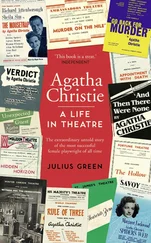Alice Green - Town Life in the Fifteenth Century, Volume 1
Здесь есть возможность читать онлайн «Alice Green - Town Life in the Fifteenth Century, Volume 1» — ознакомительный отрывок электронной книги совершенно бесплатно, а после прочтения отрывка купить полную версию. В некоторых случаях можно слушать аудио, скачать через торрент в формате fb2 и присутствует краткое содержание. Жанр: literature_19, foreign_antique, foreign_prose, Историческая проза, на английском языке. Описание произведения, (предисловие) а так же отзывы посетителей доступны на портале библиотеки ЛибКат.
- Название:Town Life in the Fifteenth Century, Volume 1
- Автор:
- Жанр:
- Год:неизвестен
- ISBN:нет данных
- Рейтинг книги:3 / 5. Голосов: 1
-
Избранное:Добавить в избранное
- Отзывы:
-
Ваша оценка:
- 60
- 1
- 2
- 3
- 4
- 5
Town Life in the Fifteenth Century, Volume 1: краткое содержание, описание и аннотация
Предлагаем к чтению аннотацию, описание, краткое содержание или предисловие (зависит от того, что написал сам автор книги «Town Life in the Fifteenth Century, Volume 1»). Если вы не нашли необходимую информацию о книге — напишите в комментариях, мы постараемся отыскать её.
Town Life in the Fifteenth Century, Volume 1 — читать онлайн ознакомительный отрывок
Ниже представлен текст книги, разбитый по страницам. Система сохранения места последней прочитанной страницы, позволяет с удобством читать онлайн бесплатно книгу «Town Life in the Fifteenth Century, Volume 1», без необходимости каждый раз заново искать на чём Вы остановились. Поставьте закладку, и сможете в любой момент перейти на страницу, на которой закончили чтение.
Интервал:
Закладка:
187
Schanz, i. 249.
188
Keutgen, 42, 51-54.
189
Schanz, i. 251.
190
Keutgen, 30, 81.
191
Ibid. 44, &c.
192
Pauli’s Pictures, 172, 185. Keutgen, 10-43. Richard the Second complained to the Grand Master that traders were forced to carry their cloth to Elbing instead of Danzig (ibid. 72). In 1388 three citizens of London and York were sent to Marienberg with an interpreter to make a treaty of commerce with the “general master of the house of S. Mary of Teutonia.” (Hist. MSS. Com. i. 109.) In 1397, however, trade with the Easterlings was practically stopped. The English imposed enormous duties on German imports; the Germans forbade traffic in English cloth. For the negotiations carried on by Henry the Fourth see Literæ Cantuarienses, iii. xxviii. – xxxi., and the various letters on the subject. The English colony in Danzig increased greatly after the peace of Marienberg. (Schanz, i. 231.) In 1392 more than 300 English came into Danzig to carry corn. (Keutgen, 71.) But the resistance of the Danzig burghers to English trade was strenuous. They were less jealous of the Netherlands manufacturers, and the Teutonic Order in the fifteenth century sent to Dinant for the rough cloth needed for the Baltic trade. (Pirenne, Dinant, 97; Keutgen, 81-83.)
193
Pauli’s Pictures, 135-8.
194
8 H. VI. c. 2; Proc. Privy Council, iv. 208; Schanz, ii. 170.
195
In 1425 there were letters from Henry the Sixth to the King of Dacia, Norwegia, and Swecia, concerning the merchants of Lynn who traded with the parts of North Berne; (Hist. MSS. Com. xi. 3, 203). In 1427 he wrote to the English merchants “in partibus Prucie, Dacie, Norweie, Hanse, and Swethie commorantes,” to assemble in a sufficient place, elect governors and make ordinances for self-government in mercantile matters, and for reasonable punishment of any merchants disobedient (203). At times the English even forced compensation from the Hanse merchants for outrages (Schanz, i. 250). In 1438 rye was brought from Prussia “by the providence of Stephen Browne,” the mayor, at a time of famine in England, when a bushel of corn was sold for 3s. 4d., and the people were making bread of vetches, peas, beans, and fern-roots. (Fabyan, 612.)
196
Schanz, i. 254.
197
Libel of English Policy. Pol. Poems and Songs, ii. 191. The bailiffs and community of Chepstowe did trade with Iceland and Finmark. (Proc. Privy Council, iv. 208.) In 1426 Lynn forbade trade with Iceland to its inhabitants and the whole community sent a petition against the trade to the King’s Council. (Hist. MSS. Com. xi. 3, 160.)
198
Hunt’s Bristol, 94-6. In 1491 fishing-smacks starting for Iceland had to get leave to sail, after finding surety that they would not carry more grain nor any other forbidden thing than sufficed for their own food. Paston Letters, iii. 367-9.
199
Keutgen, 30.
200
Ibid. 84-5, 70-71. For these negotiations see Rymer’s Fœdera, x. 656-7, 666-70, 753. Bekynton, i. 215.
201
In 1439. Bekynton’s Corres. i. 183-4.
202
“Whereof the payment was kept secret from writers” (Fabyan, 657.)
203
The fortunes of Memling’s Last Judgement now at Danzig give a curious illustration of this war and the trade complications of the time. Ordered at Bruges through the Florentine agents there (the Portinari), probably by Julian and Lorenzo de Medici, the picture could not be carried to Florence on account of this war begun in 1468. At last in 1473 it was sent off from Sluys in a British-built ship, which had been bought by English merchants as a French prize, chartered by Florentines in Bruges for a voyage to London, registered in the name of the Portinari, commissioned by a French captain, and navigated under the Burgundian flag for greater security against capture. It was, however, taken off Southampton by a privateer sailing under the Danzig flag and commanded by a noted captain Benecke. In spite of a bull issued by Sixtus the Fourth the cargo was sold at Stade and the picture brought by the owners of the ship to Danzig. (Crowe and Cavalcaselle, Early Flemish Painters, 257-260.)
204
Henry the Sixth, on the other hand, brought the help of the Genoese. Possibly the excessive price of fish mentioned in the Paston Letters in 1471 may have been caused by the political troubles (iii. 22, 254).
205
Schanz, i. 172-9; ii. 388-396. Pauli’s Pictures, 185-7.
206
Schanz, i, 186.
207
Schanz, i. 294.
208
Schanz, i. 257.
209
Schanz, i. 237-42.
210
For the negotiations between the Easterlings and the English merchants, see Schanz, ii. 397-430; i. 179-201. In 1498 Archduke Philip, seeing the utter ruin into which Bruges had fallen, tried to revive it by ordering that all foreign merchants should do their business there only, by improving the harbour, and by making it the Staple for English cloths in Flanders . (Schanz, i. 26-27.) In 1501 Philip made Bruges a Staple where English cloth might be sold in Flanders under strict conditions. (Ibid. ii. 203-6.) In 1506 Henry won from the Archduke the right to sell cloth by the yard and to have the manufacture of it finished in all his dominions except Flanders. (Ibid. i. 31.)
211
The friendly way in which the English merchants even in 1405 looked on Genoese traders is illustrated in the story told by Fabyan (571), of three carracks of Genoa laden with merchandise plundered by English lords. The Genoese merchants made suit to the King for compensation, and meanwhile borrowed from English merchants goods amounting unto great and noble sums. When their suit was seen to be in vain they made off with their spoils “to the undoing” of many merchants.
212
Hunt’s Bristol, 97-8.
213
For the anxiety as to the friendship of powerful maritime states see the French boast of the alliance of Spain and Genoa; Heralds’ Debate, 59. It is interesting to notice that both Edward the Fourth and Henry the Seventh preferred Florence to Venice. Disputes about the Venetian wool trade under Henry the Sixth are mentioned in Bekynton’s Corresp. i. 126-9.
214
The price of wine had been raised in England by new rules about measures.
215
A pilgrim to Rome in 1477 got letters in London on the bank of Jacobo di Medici. (Hist. MSS. Com. vi. 361.)
216
1. English merchants might trade freely with Florence in all kinds of wares of home or foreign origin.
2. The Florentines promised to buy no wool save from English ships. The English on their side were bound to carry yearly to Pisa an average quantity for all the Italian states save Venice. In Pisa they were to have all the privileges of inhabitants and to have land for a building.
3. The English were to be free from personal services and from taxes which might be raised on trade.
4. The merchants might form a corporation in Pisa.
5. Quarrels between Englishmen to be settled by their own head. Quarrels between an Englishman and a foreigner to be decided by the municipality and the English consul. Criminal cases by the municipality alone.
Читать дальшеИнтервал:
Закладка:
Похожие книги на «Town Life in the Fifteenth Century, Volume 1»
Представляем Вашему вниманию похожие книги на «Town Life in the Fifteenth Century, Volume 1» списком для выбора. Мы отобрали схожую по названию и смыслу литературу в надежде предоставить читателям больше вариантов отыскать новые, интересные, ещё непрочитанные произведения.
Обсуждение, отзывы о книге «Town Life in the Fifteenth Century, Volume 1» и просто собственные мнения читателей. Оставьте ваши комментарии, напишите, что Вы думаете о произведении, его смысле или главных героях. Укажите что конкретно понравилось, а что нет, и почему Вы так считаете.












